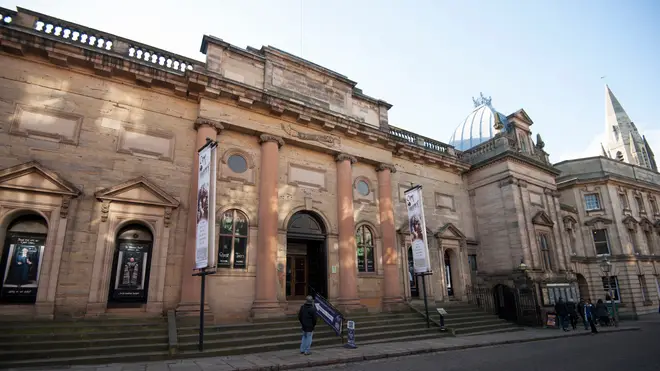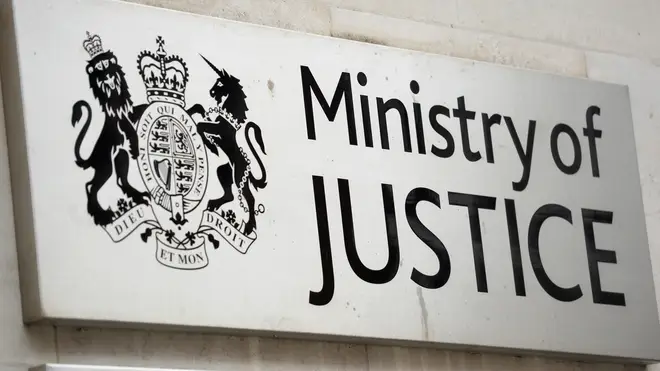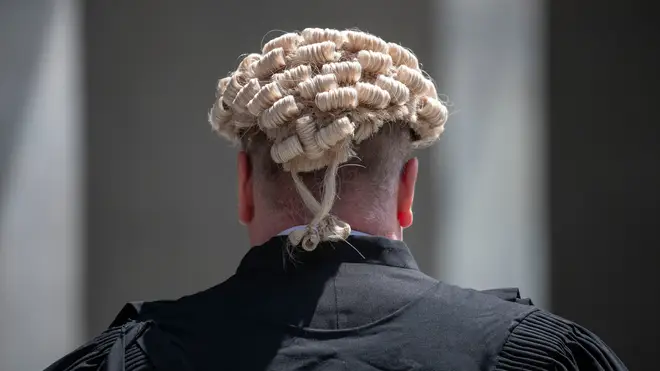
James O'Brien 10am - 1pm
14 November 2019, 20:17

The number of offenders being punished for their crimes is at its lowest level in almost half a century, according to the latest figures from the Ministry of Justice.
Just 6.5 per cent of criminals are being sent straight to jail when they are sentenced, the lowest level in a decade.
Prosecutions and out-of-court disposals, which include cautions, penalty notices and community resolutions, is also at its lowest level since records began in 1970 after falling 2 per cent last year.
Less people overall were formally dealt with by the criminal justice system between July 2018 and June 2019 compared with 1970 when record began.
In 2018-19, 1.58 million people were dealt with, compared to 1.86 million in 1970, according to Ministry of Justice data.
Last year, 1.37 million defendants were prosecuted, and the number facing magistrates' court is down 2 per cent.
However, the average length of a prison sentence rose to 17.4 months, the highest level in 10 years.
It has been steadily rising since June 2009, when it was 13.5 months.
The figures also show that the number of suspects on bail after being questioned by police has fallen 10 per cent since June last year.

Meanwhile, crime recorded by police rose overall by 6 per cent to 5.3 million offences, excluding some fraud crimes.
Researchers said this is likely to be due to victims being more willing to come forward, as well as better recording of crimes among police forces.
There was also a 10 per cent drop in the number of penalty notices handed out for disorder, falling to 20,500.
91 percent of these notices were as a result of someone being convicted for drunk and disorderly, harassment and causing alarm or distress, theft of items costing under £100, and possession of cannabis.
Some 78 per cent of the cautions issued for serious offences were for drugs, theft and violence.

Lawyers have warned that the figures show the extent to which the public are being let down by the justice system and called on the next government to commit to investment.
Richard Atkins QC, chairman of the Bar Council, described the figures as a "major concern", adding: "The inescapable fact is that the disproportionate cuts to the criminal justice budget over many years has broken the system.
"Only a considerable investment in the criminal justice system by the next government will reverse the damage and restore public confidence."
Caroline Goodwin QC, chairwoman of the Criminal Bar Association, said: "Protecting the public from harm is a basic, core duty any government has to the public and, quite rightly, the public expect that duty to be fulfilled.
"Talk by politicians about being 'tough on law and order' remains just that until substantial investment is made all the way through the system - not just in the police, but the CPS, criminal legal aid defence, courts and parole service so reported offences are properly investigated, then charged, prosecuted and brought to trial in a timely manner.
"Anything less won't do. The public cannot be short-changed."
Simon Davis, president of the Law Society of England and Wales, said: "Victims of crime, as well as those accused of offences, need to have confidence that the criminal justice system is capable of delivering justice. But it is a system at breaking point.
"We rely upon the criminal justice system to ensure our rights are protected and the rule of law is upheld.
"Instead, crime is falling through the cracks of investigation and prosecution."